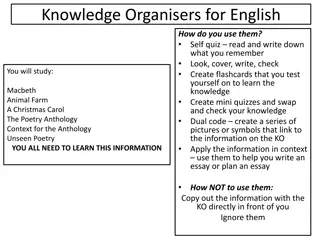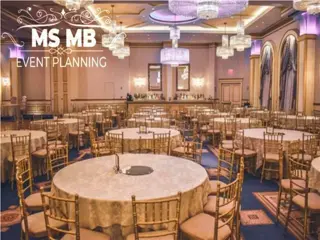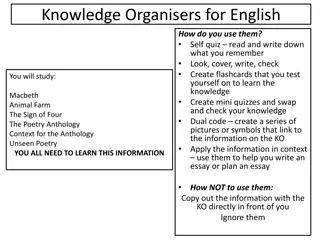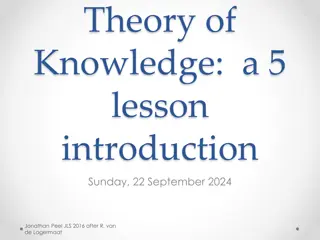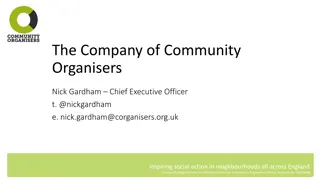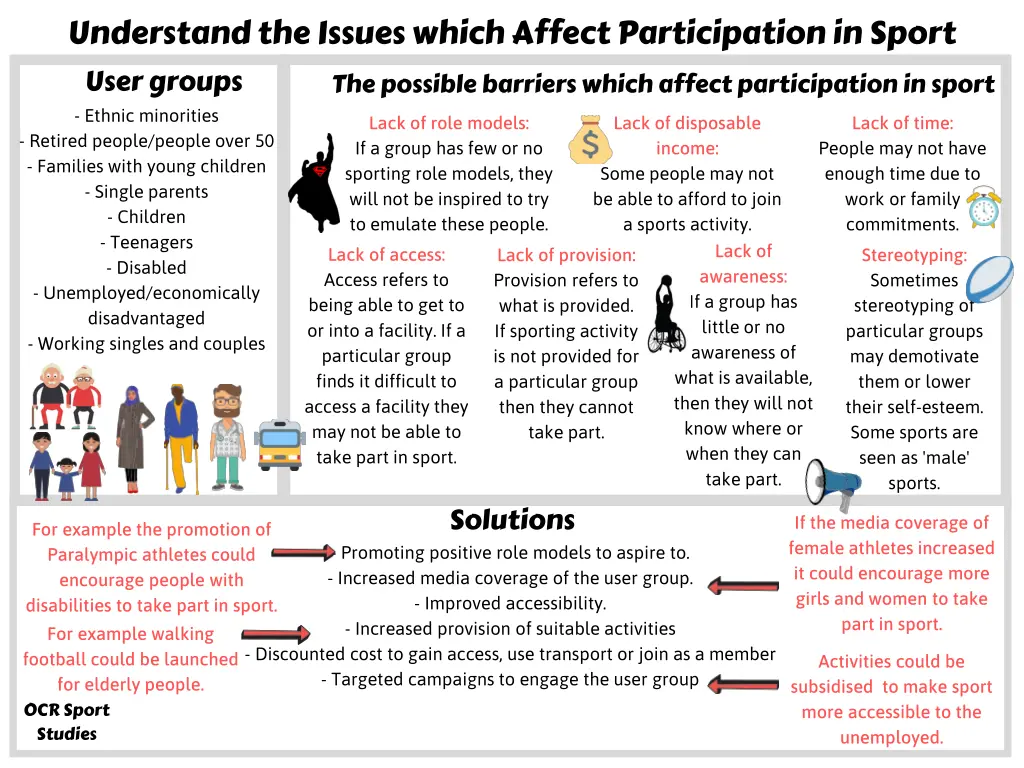
Understanding Factors Affecting Sport Participation and Promoting Values
Explore the barriers to sport participation for various user groups, such as ethnic minorities and retired individuals, including lack of role models, income, time, awareness, access, and provision. Discover solutions like promoting positive role models, increased media coverage, improved accessibility, and targeted campaigns. Additionally, learn about the impact of environment, media coverage, provision, success, and acceptability on the popularity of sports in the UK, along with the role of sport in promoting values like team spirit, citizenship, and fair play.
Download Presentation

Please find below an Image/Link to download the presentation.
The content on the website is provided AS IS for your information and personal use only. It may not be sold, licensed, or shared on other websites without obtaining consent from the author. If you encounter any issues during the download, it is possible that the publisher has removed the file from their server.
You are allowed to download the files provided on this website for personal or commercial use, subject to the condition that they are used lawfully. All files are the property of their respective owners.
The content on the website is provided AS IS for your information and personal use only. It may not be sold, licensed, or shared on other websites without obtaining consent from the author.
E N D
Presentation Transcript
Understand the Issues which Affect Participation in Sport User groups - Ethnic minorities - Retired people/people over 50 - Families with young children - Single parents - Children - Teenagers - Disabled - Unemployed/economically disadvantaged - Working singles and couples particular group finds it difficult to access a facility they may not be able to take part in sport. The possible barriers which affect participation in sport Lack of role models: If a group has few or no sporting role models, they will not be inspired to try to emulate these people. Lack of disposable income: Some people may not be able to afford to join a sports activity. Lack of time: People may not have enough time due to work or family commitments. Lack of awareness: If a group has little or no awareness of what is available, then they will not know where or when they can take part. Lack of access: Access refers to being able to get to or into a facility. If a Lack of provision: Provision refers to what is provided. If sporting activity is not provided for a particular group then they cannot take part. Stereotyping: Sometimes stereotyping of particular groups may demotivate them or lower their self-esteem. Some sports are seen as 'male' sports. Solutions If the media coverage of female athletes increased it could encourage more girls and women to take part in sport. For example the promotion of Paralympic athletes could encourage people with disabilities to take part in sport. For example walking football could be launched for elderly people. - Promoting positive role models to aspire to. - Increased media coverage of the user group. - Improved accessibility. - Increased provision of suitable activities - Discounted cost to gain access, use transport or join as a member - Targeted campaigns to engage the user group Activities could be subsidised to make sport more accessible to the unemployed. OCR Sport Studies
Understand the Issues which Affect Participation in Sport The factors which impact the popularity of sport in the UK Environment/climate: There are some indoor snow areas in the UK but for a lot of people they have to use artificial slopes.The weather in the UK can also pose a barrier to those who do not like getting cold or wet. Spectatorship/media coverage: The amount of media coverage given to a sport can affect its popularity. For example football receives a lot of media coverage and has high participation rates. Whereas sports such as badminton and squash receive a lot less media coverage. Provision: People can not participate if there is little or no provision available. There are very few indoor velodromes for cycling in the UK and there is also a lack of easily accessible outdoor tennis courts. Success for both teams and individuals: As sporting success is achieved, people are generally inspired to take part. Netball success at the Commonwealth Games in 2018 resulted in an increase in netball participation for the rest of the year. Acceptability: Culture can dictate what is deemed to be an acceptable or unacceptable sport. For example many believe that horse racing is cruel to the animals involved, due to the use of a whip. Some also believe that boxing should be banned due to the potential for injury. Emerging sports in the UK OCR Sport Studies
Know about the Role of Sport in Promoting Values Values which can be promoted through sport OCR Sport Studies Team spirit Citizenship Inclusion National pride Fair play Excellence Tolerance and respect The Olympic Creed The Olympic and Paralympic Values There are three Olympic values: - Friendship - Respect - Excellence 'The most important thing in the Olympic Games is not to win but to take part, just as the most important thing in life is not the triumph, but the struggle. The essential thing is not to have conquered, but to have fought well.' The Olympic Symbol There are four Paralympic values: - Determination - Inspiration - Courage - Equality The five interlocking rings represent the union of the five continents of the world which take part. Sport initiatives to break down barriers Encourages players and spectators to respect referees and coaches Aims to Aims to make cricket more accessible for inner city children Aims to end racism in football Aims to get people of all ages involved in netball make tennis more accessible
Know about the Role of Sport in Promoting Values The importance of etiquette and sporting behaviour of both performers and spectators OCR Sport Studies Sportsmanship: Behaving in a way that is fair, polite and appropriate when participating in a sporting event. Etiquette: The unwritten rules concerning behaviour. For example, kicking the ball out of play when someone is injured in football. The ball is then returned to the team that kicked it out. For example, shaking hands before and after a game or clapping an opposition's goal in netball. Being gracious and respectful when winning or losing is also an example of sportsmanship. Another example is not walking across the 'line' of someone else's putt in golf. Spectator etiquette: Spectators also have unwritten rules to follow that mean they behave in an appropriately sporting way. Gamesmanship: This is when performers bend the rules to gain an advantage. For example, taking a long time to collect the ball to waste time in football or re-tying a shoes lace in tennis just before the opponent serves. For example, being quiet during rallies in a tennis match or respecting an opponent's national anthem. Reasons for observing etiquette and sporting behaviour - Performing in a fair way - Promoting positive values - Ensuring the safety of themselves and other performers - Being respectful to those in their own team and the opposition - Acting as a positive role model for children
OCR Sport Studies Know about the Role of Sport in Promoting Values Reasons why people take performance-enhancing drugs To lose weight Pressure to succeed as an individual Belief that others are taking drugs Pressure to succeed a nation To mask pain Improved performance Increased ability to train Improved strength, stamina or power Improved recovery time Reasons against taking performance-enhancing drugs May suffer long-term ill-health Suffer harsh consequences when found guilty Reputational damage after being caught Unfair advantage over others Over-reliance/addiction may result Immoral to take PEDs and cheat Drug offences by elite performers Year, performer, sport Banned drugs 1988, Ben Johnson (100m and 200m sprinter) 2001 and 2006, Justin Gatlin (100m and 200m sprinter) 2003, Dwain Chambers (100m and 200m sprinter) 2004, David Miller (cycling) 2016, Maria Sharapova (tennis) Anabolic steroids Amphetamines Anabolic steroids Kenacort, EPO Meldonium
Know about the Role of Sport in Promoting Values World Anti-Doping Agency (WADA) WADA was founded in 1999 and it aims to ensure a drug-free sporting environment all over the world. The whereabouts rule: Select groups of elite athletes must provide information to the International Sport Federation (IF) or the National Anti- Doping Organisation (NADO). The information they must supply includes: - Their location - Accommodation being used - 60 minute timeslot every day when the athlete must be in a set place for testing - Training schedule Competition schedule OCR Sport Studies Testing methods: Athletes can be tested at any time and in any place. Testing methods include: - Blood or urine samples - Hair or nail samples Current initiatives reputation of the sport - The reputation of the sport may be Impact of drug taking on the Ethical issues related to drug taking - Should doping be classed as cheating? - Should those who get caught be allowed to compete again? - Is it fair that some performers appear to get away with doping whereas others don't? - Is it fair that the illegal drugs list does not include all drugs? Athletes can be banned from competing for several years if they are caught taking PEDs. tarnished - Spectators may question whether they are viewing a 'clean' and fair sport - There may be mistrust of results - After to many cases in one sport or event spectators may become sceptical about the whole field, for example the Tour de France. The Russian Olympic Committee was suspended in December 2017 due to evidence of state-sponsored doping.
Understand the Importance of Hosting Major Sporting Events The features of major sporting events Regularity/scheduling 'One-off' events One-off events are held once in a certain place or at a certain time. For example when a city hosts the Olympic or Paralympic Games it may be a once in a generation event. League Final is held every year. A city could host it more than once in a relatively short space of time, but it tends to be shared around. Regular and recurring events Many sporting events are regular and recurring - regular in that they happen often at set intervals, and recurring in that they are periodically repeated in the same place. For example The FA Cup Final happens at Wembley every May and Wimbledon is an annual tournament held at the All England Club in Wimbledon. Regular events Most major sporting events are regular in that they are held annually (every year) or biennially (every second year). For example the UEFA Champions International element to the event Many major sporting events have an international element, in that the performers involved come from different countries. As the competitors come from different countries, so do the spectators and the media. Level of investment Major sporting events require a significant amount of investment to be a success. For example it costs Russia $11.8bn in construction and preparation costs to host the 2018 World Cup. Big events can also attract funding. Sponsorship is a crucial elemt of funding, to ensure that major sporting events are financially viable. For example companies such as Ralph Lauren and Robinsons pay significant money to be official sponsors of Wimbledon. OCR Sport Studies
Understand the Importance of Hosting Major Sporting Events The features of major sporting events Potential 'legacy' of the event Sporting legacy Hosting a major sporting event can lead to: - A raised profile of the sport, leading to more people participating and watching. - New and regenerated sporting venues which leave a positive legacy for years after. - Minority sports and Paralympic sports get more exposure. - Increased funding to ensure the host nation do well. - Business and economic developments within the city and Social legacy Hosting a major sporting event can lead to: - More money brought in to the city to support public services. - Generates a sense of national pride. - Improvements in transport and city infra-structure. Economic legacy Hosting a major sporting event can lead to: - Increased awareness about the city around the world. - Increased tourism as a result of the event and its legacy. country. The potential benefits of hosting major sporting events - Investment will be used to develop the transport system within the city. The city must be able to deal with the influx of tourists. - There will be an increase in tourism. Direct tourism is when visitors visit the host city to attend the major sporting event. In direct tourism is when visitors visit the host city after the event. - There will be some commercial benefits. For example, the city will receive money from sponsors. - External investment which would not otherwise have been attracted will come in to the city. - Participation may increase as a result of the population being inspired. - Jobs will be created to build, manage and administer the new infrastructure. - Sports facilities will be improved or new facilities will be build. - The event can raise the status of the city or country as it is advertised to the world. - The morale of the country is often raised as the population shows pride in their city, country and athletes. OCR Sport Studies
Understand the Importance of Hosting Major Sporting Events The potential drawbacks of hosting major sporting events - The bidding process to host a major sporting event can be very expensive and the country may not even be awarded the event. - Hosting the event may cost more money than it makes - Facilities may not end up being used after the event if the legacy is not planned properly. - If the event is poorly run, it can have a negative impact on the status of the country. - Hosting the event may only help to promote a few areas of sport. - The public may resent the use of tax money, feeling that their individual part of the country is not gaining from an event that might be located hundreds of miles away from their homes. The links between potential benefits and drawbacks and legacy There are some clear links between the potential benefits and drawbacks of hosting a major sporting event and the legacy it should provide. Developing facilities: Although this can be very costly, it can allow future generations to make use of the facilities (sports development) and enhance opportunities for people to take part in social activities (social development). Infrastructure: Tourism: Although the cost of improving transport can be costly, it can be built and run in a more environmentally friendly way and allow the population to travel to take part in sport (sport development/social development) It is costly to cater for the number of direct and in direct tourists but there will be an increase in income to the city (economic development) and it will help others to appreciate the cultural value that the city offers. OCR Sport Studies
Know about the role of national governing bodies in sport What is a national governing body? National governing bodies (NGBs) are independent bodies that have responsibility to govern and manage their sport within a country. What national governing bodies in sport do Promotion Providing a national directive and vision All NGBs provide direction and vision for their sport in their country. Many use a strapline, for example; - England Table Tennis - Building better experiences - Lawn Tennis Association - Here to help as many people as possible enjoy and get involved with tennis, across the whole of Great Britain. One major role of any NGB is to increase participation. NGBs provide equal opportunity policies, whereby all genders, religions, cultures and ages are invited to take part. NGBs also try to increase the media exposure of the sport. This can be done through, press releases, social media profiles and community engagement programmes (e.g elite athletes visiting schools) Development NGBs also enable performers to develop, showing clear pathways for performers to progress through. For example; - England Hockey run Development Centres for players from U13 to U17. The next step up from Development Centres are Academy Centres. This pathway continues all the way through to the full England squad. NGBs also develop coaches and officials. - Most NGBs have a level-based system of coaching awards. For example England Netball uses the UK Coaching Certificate (UKCC) scheme where coaches can progress through 3 levels of coaching. - Most NGBs have a designated set of courses that officials can work their way through. The Rugby Football Union (RFU) has a Young Officials Award which can be used for those aged 14 to 24. OCR Sport Studies
Know about the role of national governing bodies in sport What national governing bodies in sport do Infrastructure NGBs are responsible for the infrastructure of their sport. This refers to: - How competitions are organised - How leagues are administered - How rules are made, changed and administered - How disciplinary procedures are administered - How a strategy and direction for the sport are delivered - Running and assisting with the development of facilities Support NGBs also provide information about technical advice on equipment, venues and surfaces. - E.G England Hockey provides information about artificial playing surfaces. NGBs generally provide location and contact details for local clubs. Policies and initiatives NGBs are responsible for the policies and procedures involved with a sport. For example; customer care policy, diversity action plan and transgender guidelines. - This includes anti doping policies. For example the England and Wales Cricket board displays its anti- doping policy and a list of banned substances on its website. - They also promote appropriate etiquette, sporting behaviour and fair play. - NGBs try to engage the community with their sport, to encourage participation. - They are also play a large role in ensuring appropriate advice is given to ensure the safeguarding of children. Funding NGBs have to lobby for funding from the Department of Digital, Culture, Media and Sport. (Lobbying involves presenting an argument that seeks to influence another's decision) They also provide members with advice about how to apply for funding. NGB's also have to choose how funding should be distributed. Targeting minority user groups Rules & administration Performer grants Sports venues & facilities Education National success & teams Grassroots participation Community engagement Digital engagement OCR Sport Studies








